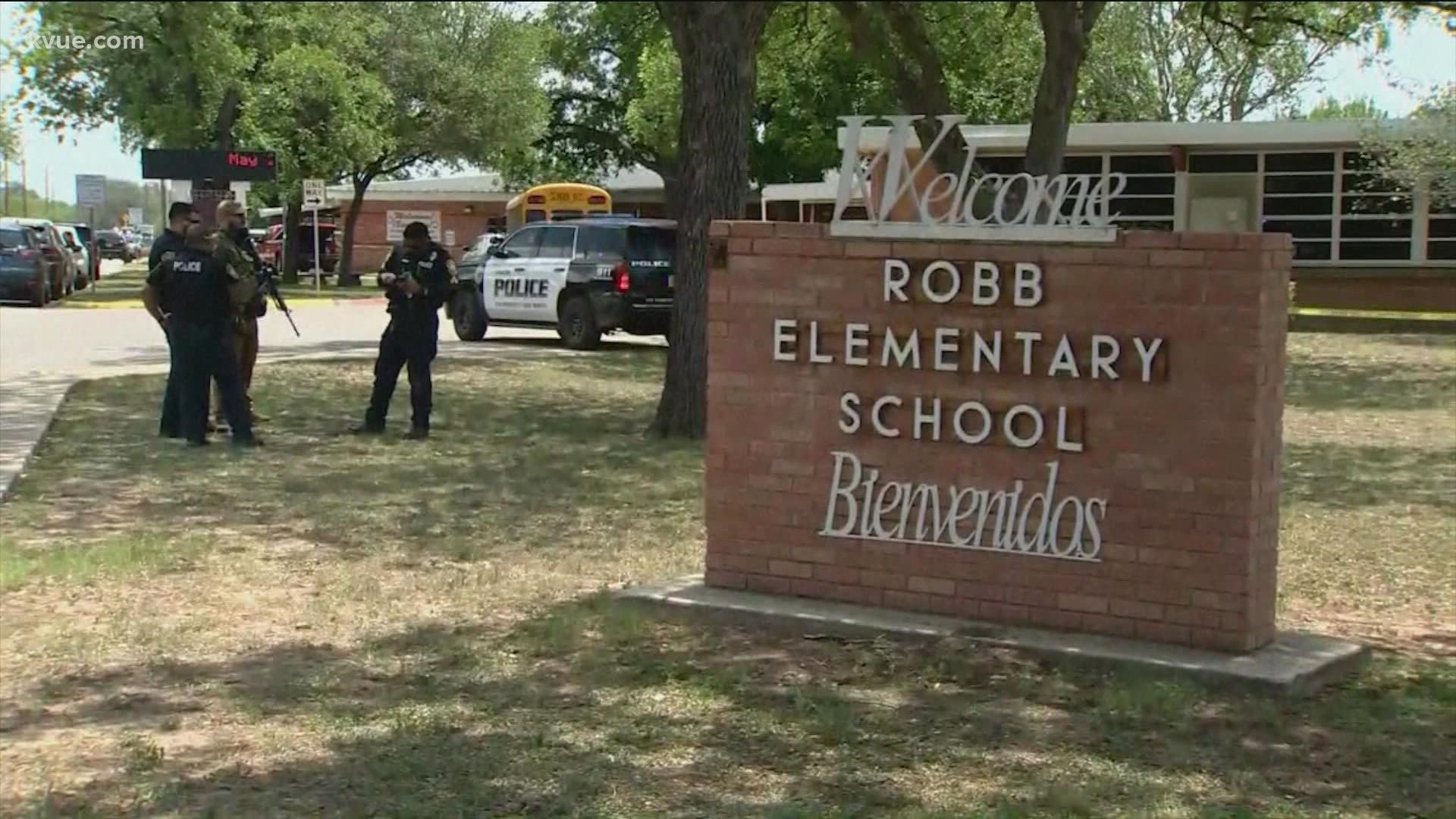AUSTIN, Texas — The Uvalde community devastated by the Robb Elementary School shooting is now laying victims to rest, but many questions about the tragic event remain unanswered.
Public release of video, 911 calls and other evidence from the shooting could provide the most accurate account of that day, but whether that evidence will ever be released is still up in the air. And Texas law may not make it easy.
Evidence from an investigation, like videos, witness statements and 911 calls, is not necessarily public information unless the case results in a conviction. In the case of the Uvalde shooting, there is no way the 18-year-old gunman could be convicted because he was shot dead by officials at the scene.
In cases like this, that means the decision to release evidence is up to the law enforcement agency. Over the years, Texas journalists have reported on cases, for instance, when a person dies in police custody and not even the victim's family can get information about what happened because of state law.
In some cases, when law enforcement agencies have decided against releasing evidence, journalists have successfully appealed the decision, stressing the public's right to know.
That was the case in the death of Javier Ambler in 2020. The Austin Police Department had the only video that existed in the case, and the KVUE Defenders convinced then-Police Chief Brian Manley to release the video.
However, the caveat is that many agencies, like APD, have recently put in place more generous policies to release videos particularly involving police shooting cases within 10 days. That decision was an internal one and the law doesn't say they are mandated to release the information.
At this point in the case of the Uvalde shooting, there has been no official word on whether or not evidence will be released, although requests have been submitted.
On Thursday, June 2, Texas House Speaker Dade Phelan tweeted a comment on the "dead suspect loophole," saying, "More than anything, the families of the #Uvalde victims need honest answers and transparency. Period. It would be absolutely unconscionable to use the 'dead suspect loophole' to thwart the release of information that is so badly needed and deserved right now."
Phelan went on to say that the "dead suspect loophole" was originally intended to protect the wrongfully accused, but it hasn't really worked that way in practice and instead has resulted in families of those who die in custody never getting closure or access to details of their loved one's death.
Phelan said as State Affairs chair in 2019, he heard a bill by State Rep. Joe Moody (D-El Paso) that would've ended the loophole. Phelan said the bill died in calendars but eventually passed the House after it was amended onto a Senate bill. He said he was proud to work with Moody on the floor to make sure the bill was amended and passed.
"Unfortunately this much-needed, common sense measure joined the ranks of many other [criminal] justice reform bills by meeting its death in the Texas Senate, where they stripped the language out," Phelan added. "I think it’s time we pass legislation to end the dead suspect loophole for good in 2023."
PEOPLE ARE ALSO READING:

